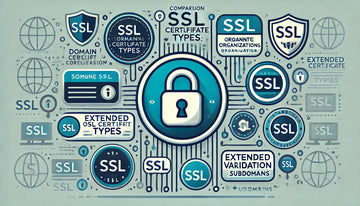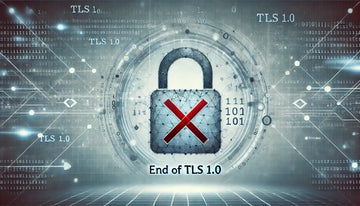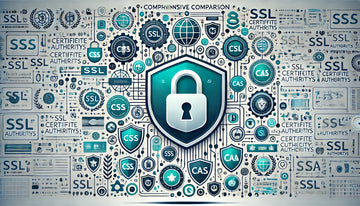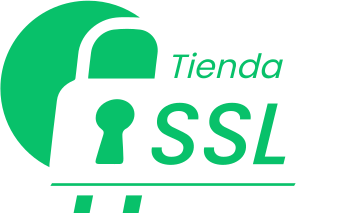When it comes to securing your website, choosing the right SSL certificate is crucial. SSL certificates protect your site and its visitors by encrypting data exchanged between browsers and servers, but not all SSL certificates offer the same level of validation or trust. Understanding the differences between the main types of SSL certificates—Domain Validated (DV), Organization Validated (OV), Extended Validation (EV), and Wildcard SSL—will help you make an informed decision based on your website’s needs.
In this post, we’ll compare the key features, benefits, and uses of these four SSL certificate types, and provide a comparison table to help you choose the right one for your site.
1. Domain Validated (DV) SSL Certificates
Domain Validated (DV) SSL certificates offer basic encryption and are the easiest to obtain. They require minimal verification—essentially, just proof that the applicant owns the domain. DV certificates are ideal for smaller websites like personal blogs or portfolio sites that don’t collect sensitive information.
- Validation: Only domain ownership is validated.
- Trust Level: Low, best for non-commercial websites.
- Cost: Free or low cost.
- Use Case: Blogs, personal websites, and small informational sites.
2. Organization Validated (OV) SSL Certificates
Organization Validated (OV) SSL certificates provide a higher level of validation. The certificate authority verifies both the domain ownership and the legitimacy of the organization requesting the certificate. This type of SSL certificate is suitable for businesses and organizations that want to establish greater trust with users.
- Validation: Verifies domain ownership and organization details.
- Trust Level: Medium, suitable for businesses and organizations.
- Cost: Moderate.
- Use Case: Small to medium-sized businesses, corporate websites, and public-facing portals.
3. Extended Validation (EV) SSL Certificates
Extended Validation (EV) SSL certificates offer the highest level of validation and security. They require thorough verification of the organization’s legal and operational existence. EV certificates are recognized by the green address bar in browsers, displaying the organization’s name, which offers maximum trust for users. These certificates are essential for e-commerce sites and large corporations.
- Validation: Extensive verification of domain ownership, organization, and legal identity.
- Trust Level: High, with the green address bar and organization name.
- Cost: Higher than DV or OV certificates.
- Use Case: E-commerce sites, financial institutions, and large corporations that require high levels of trust.
4. Wildcard SSL Certificates
Wildcard SSL certificates are unique because they secure a domain and all of its subdomains. For example, a wildcard SSL certificate issued for *.domain.com would cover domain.com as well as subdomain.domain.com. This type of SSL certificate is convenient for businesses that need to secure multiple subdomains without purchasing separate certificates for each.
- Validation: Can be issued as DV or OV certificates.
- Trust Level: Varies depending on the type (DV, OV).
- Cost: Moderate to high.
- Use Case: Businesses with multiple subdomains (e.g., blog.domain.com, shop.domain.com).
SSL Certificate Comparison Table
To make it easier to compare these SSL certificates, here’s a table summarizing the key differences between them:
| Feature | Domain Validated (DV) | Organization Validated (OV) | Extended Validation (EV) | Wildcard SSL |
|---|---|---|---|---|
| Validation Level | Domain ownership only | Domain + organization validation | Extensive validation of organization | Secures domain + all subdomains |
| Trust Level | Low | Medium | High (green address bar) | Varies (depends on DV or OV) |
| Cost | Free or low cost | Moderate | High | Moderate to high |
| Use Case | Personal blogs, small sites | Small to medium businesses | E-commerce, financial sites | Sites with multiple subdomains |
| Example | domain.com |
domain.com (verified company) |
domain.com (green bar) |
*.domain.com (all subdomains) |
Choosing the Right SSL Certificate
- DV SSL: Choose this if you have a personal blog, portfolio, or small site that doesn’t handle sensitive data.
- OV SSL: Best for businesses or organizations that need more credibility and want to ensure users can trust their website.
- EV SSL: Ideal for e-commerce sites or companies handling financial transactions, where trust and security are paramount.
- Wildcard SSL: A convenient option if you need to secure a domain and all of its subdomains.
Conclusion
Choosing the right SSL certificate depends on the type of website you operate, the level of trust you need to build with your users, and your budget. While DV SSL certificates are a good starting point for personal projects, businesses and organizations may benefit more from OV or EV certificates. If your website operates with multiple subdomains, consider investing in a wildcard SSL to simplify management and improve security across all subdomains.













